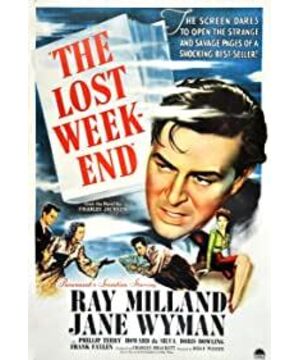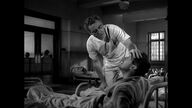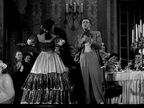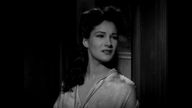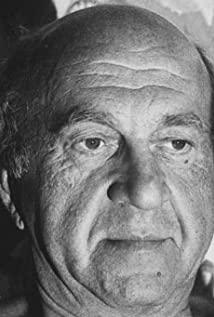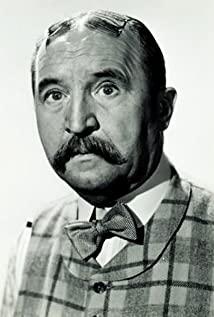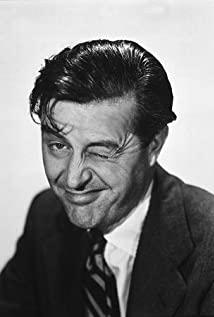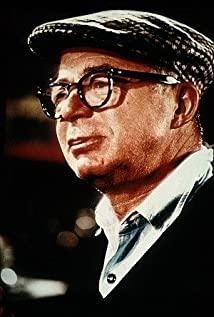Film noir has never been favored by Oscars due to its dark and depressive tone. However, Billy Wilder won the eighteenth Oscar for Best Picture, Best Director, Best Actor and Best Screenplay by virtue of this "Lost Weekend". He became an Oscar for the first time. The biggest winner.
Billy Wild's films have a wide range of themes, diverse styles, outstanding genres and styles, and are good at using Hollywood classic narrative techniques. He is one of the most outstanding directors in Hollywood's golden age. He has directed five noir films: "Double Compensation", "Sunset Boulevard", "Prosecution Witness", "Inverted Ace" and "Lost Weekend". These five films not only allowed him to establish a position in film noir, but also Enriches Hollywood's noir genres. Compared with "Double Indemnity" and "Sunset Boulevard", which tell about conspiracy and murder, the noir style features are very obvious. The "Lost Weekend" is not very "black". Discuss Social issues are very social, but it puts the focus of the film on digging into the heart of an alcoholic, bringing a unique style of film noir that conforms to the Hollywood paradigm. So this article analyzes Billy Wild’s "Lost Weekend" in terms of themes, characters, audiovisual, narrative and other aspects of its film noir genres.
Unlike other genres, film noir is mainly defined by environment settings and dramatic conflicts. Instead, it embodies more dominant styles, emotions, perspectives and meanings. It transcends the distinction between traditional genres. Both can reflect the unique style logo. The most important thing in film noir is that style rules everything.
"Lost Weekend" is a socially problematic noir film about an underwhelmed playwright who is drunk all day long. The film starts from the row upon row of buildings in the metropolis. The camera turns to the window of an ordinary apartment. The audience follows a rope and sees a bottle of whiskey hidden by the protagonist who is tied to it. At the last climax of the film, although the actor's attempt to commit suicide was stopped by his girlfriend's inseparable love, but with the feeling of "how many people are still immersed in the binge of alcoholism", the camera passed through the window and turned to the tall building again. The city is full of trees. The film ends at this time. While full of humanistic sympathy and care for alcoholics, it also reflects this social problem at the time.
The theme of the film: alcoholism not only reflects the society at the time, but it is also this social environment that created the birth of the film noir genre. One reason is that American society is shrouded in disillusionment during and after the war, so film noir is different. As with other types of Hollywood movies in the United States, it shows more of the pessimism in the characters' hearts, and the protagonist in this movie is drinking to escape reality. The second was the Great Economic Recession in the 1930s. Refugees emerged in large numbers in the cities, and the unemployed population soared, reaching almost half of the social population. At that time, the overall social structure was nearly collapsed. It seemed that everyone was involved in corruption and bribery. The city was filled with a turbulent atmosphere, full of anxiety. The economic depression and the downturn of the social atmosphere gave birth to hard-boy literary and black detective films, black Movies are also born here, often with metropolis as the background, telling black stories hidden in the city. The third is closely related to the film. The impact of the lifting of the prohibition in the United States in the 1930s. Although the prohibition was lifted, the social problem of alcoholism has arisen. This is the alcoholism that gave rise to "Lost Weekend". The image of the protagonist of the writer.
The protagonist, Tang, is a typical male image of a film noir, with the same gloomy temperament as them. He is different from the "hero" image of Hollywood. It can be said that he is a completely "degenerate" person. He is a wandering person in the metropolis of New York. A little man on the edge, an alcoholic wandering in a tavern, the audience cannot see positive power in him. The only shining point may be his enthusiasm for literature and the desire to write in his heart, but this is also Only after he had drunk did he show up, and as a result, he couldn't write and continued to drink. His writing never started. He disappointed his brother and his girlfriend, let his neighbors avoid him, and was even attacked by the bartender in the tavern. Contempt for the guidance of passersby. He embodies the qualitative characteristics of the male protagonist in Hollywood film noir, with a mysterious heart, withdrawn character, and full of loss and hostility towards the world. His moral "referred to" is also vague. He ignores everything his brother and girlfriend do to help him quit drinking. It seems that he only thinks about drinking, and even asks other women behind his girlfriend. He left the date completely behind his head, didn't have the money to pay the bill, and stole the wallet of the lady next to him and was kicked out of the bar. It can be said that the loneliness, exile, darkness, and violence of the protagonist of the film noir are all embodied in the behavior of drinking and doing whatever it takes to drink.
However, the image of his girlfriend Helen is different from that of the heroine in other noir films. They are often beautiful and dangerous. They lead the hero into the abyss step by step, just like the "female beauty" in "Double Compensation", seducing the hero and herself While murdering her husband together, Helen was just the opposite. From beginning to end, she always loved Tang unchangingly and firmly. In Tang’s memory, she knew Tang was drinking too much for the first time, but forgave him. She helped Tang stop drinking. She thought that he hadn't come home, so she waited all the time. Every bar went to find her. In the end, she took the gun from the male protagonist. She always believed that she could take her beloved man out of the abyss. The role of Helen is also a bright spot in this noir film, and it is she who has guided the plot not to the complete abyss.
"Lost Weekend" also embodies the style of film noir in audiovisual. First of all, the unique scene creates a unique visual experience. From the beginning of the film, the scene of the high-rise buildings in New York is shown, and then it turns to one of the windows. A wine bottle hangs under the window. This kind of introduction scene opening and hanging wine bottles will The audience's sights were all focused on this room in the corner of the metropolis, introducing the identity of Tang as an alcoholic, the humble little figure. The story of this weekend in the film also revolves around this room. Secondly, the characteristics of the expressionist style inherited by the film noir are also evident in this film. In the second half of the film, Tang is imprisoned in the alcohol rehab. As the protagonist becomes more and more anxious and spiritually gradually Out of control, the lens began to convey a sense of pressure. The unstable composition, light zones and lines squeezed and separated the characters. Tang was lying on the hospital bed, the iron door opened and closed, and the light reflected on his face through the iron net. , Surrounded by the anxious voices of alcoholics, the emotions of the audience became more and more tense. When he was escaping home, his spirit had collapsed and hallucinations began. The camera moved to the wall, magnifying the rat in the hallucinations. The hallucinations and Tang collapsed alternately, together with a soundtrack that created a sense of horror. Push to climax.
In terms of narration, the film does not tell the story of a protagonist who is attracted to the abyss of destiny by the femme fatale, but Tang is led step by step into the black hole made by alcohol, and the story of the last few suicides still tells this in essence. The black story, he experienced a rapid and almost desperate thing in just one weekend, but when he was ready to shoot himself and wanted to commit suicide, it was his girlfriend Helen who rescued him and gave him hope again. This is different from the ending trend of general noir films, but this ending is also in line with the theme of the film "on the surface". It seems that the director uses this noir style film to tell a person who faces despair but still has dreams. The story of hope sets a girlfriend like Helen who has always been inseparable, making the actor repent at the end and regain his rationality in the face of the wine glass. But from another angle of interpretation of this "seemingly perfect" ending, the director did not tell us whether Tang really wrote his novel. Who said that such a hopeful end would not be the beginning of the next disappointment? He threw the cigarette butt into the wine glass, looking to the future, actually echoing the beginning, the camera rolls out the window, and shows an endless line of tall buildings, row upon row of desires and ambitions, and the deep despair and humbleness buried under the tall buildings. Maybe this is the reason. What Billy Wilder wants to tell us about the little people in the city.
As the male nurse in the alcohol treatment center said: "A glass is never enough for you." Tang, who is trapped in it, wants more than just a glass of wine, but besides this glass of wine, he doesn't know that he still has it. What can be grasped. Perhaps it is love, which makes only the description of Helen's love in the whole film so beautiful and unswerving. Billy Wilder's genre and style in his comedies and romantic films penetrated this special film noir, giving it a bright color with love.
"Lost Weekend", as one of Billy Wilder's film noir masterpieces, not only has the temperament and genre characteristics of film noir in all aspects and its own unique genre-based style, but also the beautiful love in romantic films. It also reflects the times and society at that time. Although it has a social edifying function to a certain extent, its characters, narratives, and use of audiovisual language are all very good. In the American noir films of the 1940s, there are not only crimes, murders, and crimes, but also stories like this, which are just exploring the deepest hidden desires of a character.
View more about The Lost Weekend reviews


